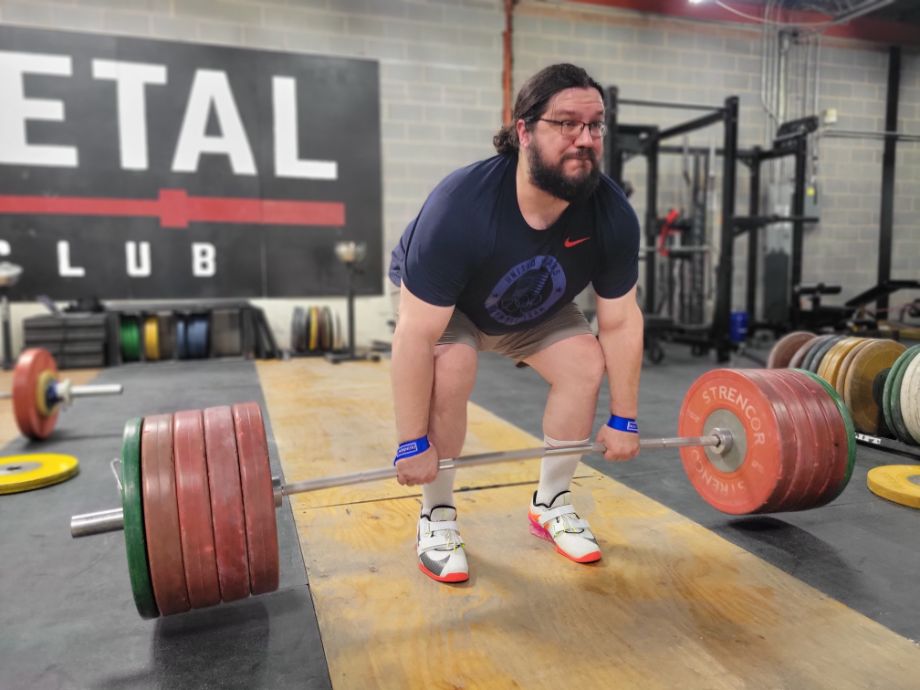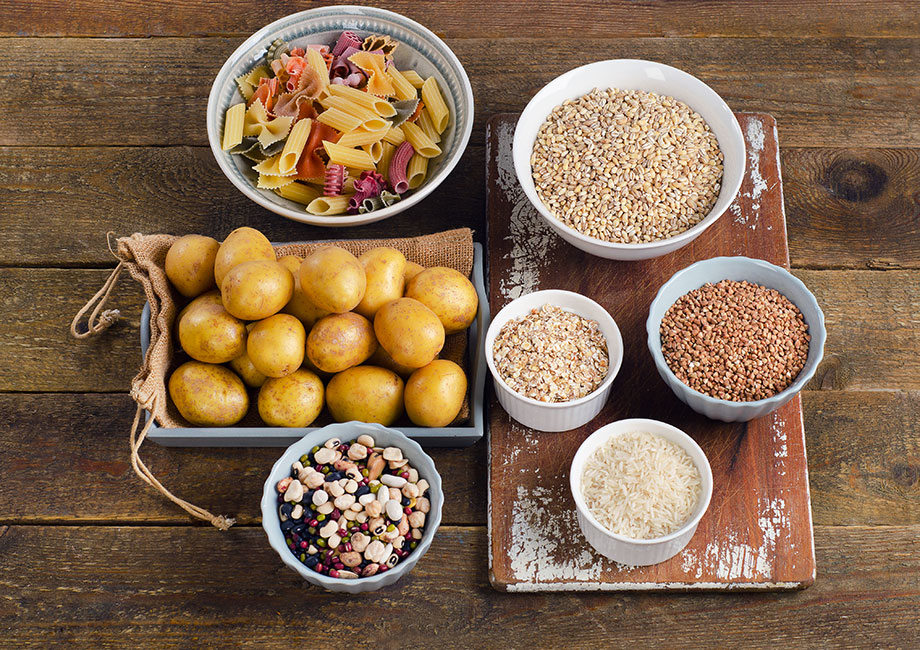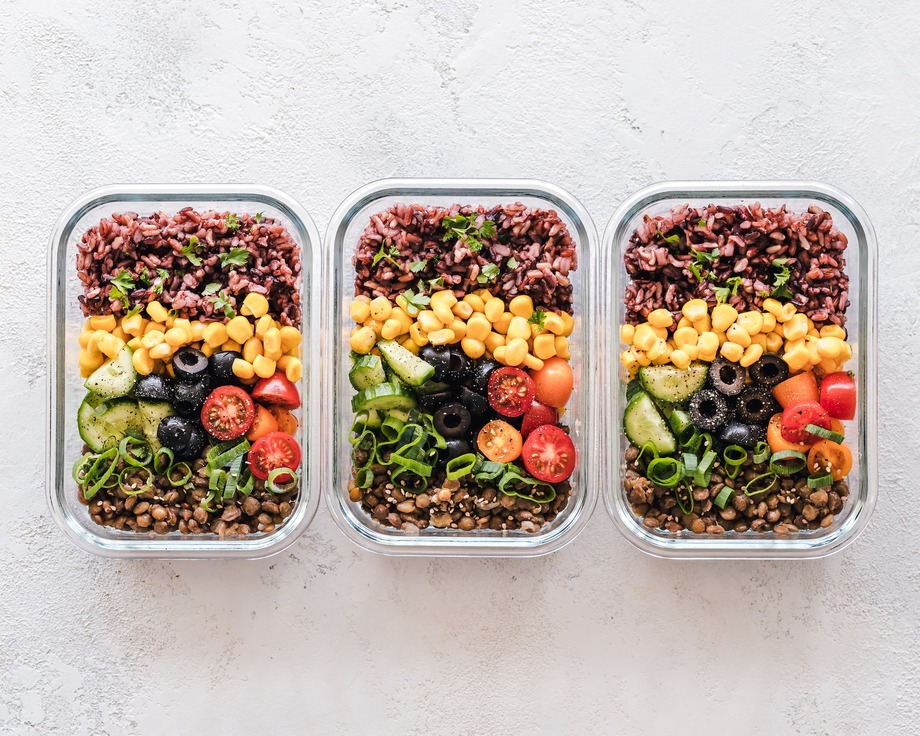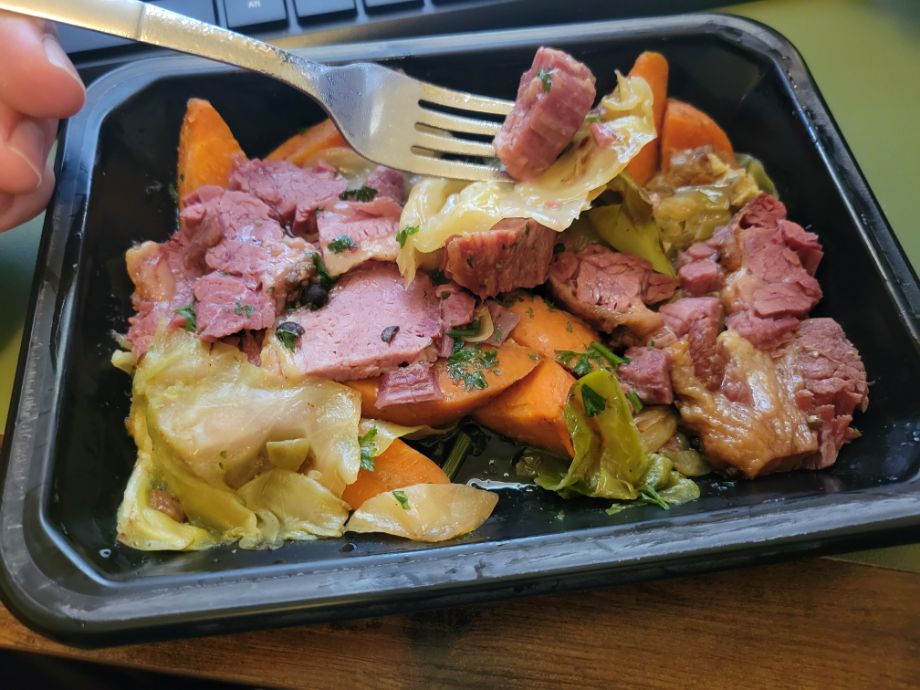We test and review fitness products based on an independent, multi-point methodology. If you use our links to purchase something, we may earn a commission. Read our disclosures.
Before diving into the heart of our discussion, I want to acknowledge that the journey toward health is deeply personal. As a registered dietitian, I understand that each individual’s needs and goals are unique, requiring customized approaches.
While I wish I knew the exact intentions of your search about “how to gain weight fast,” my capabilities are limited to this space. This is why we at GGR stress the importance of consulting a healthcare professional for tailored advice, especially given the weird diets and unreliable information available at our fingertips.
If you want insights and guidance on your weight gain journey, I invite you to walk (or read) alongside me. Let’s explore this topic together, arming you with the knowledge to navigate your path to gaining weight effectively and healthily.
Medical disclaimer: This article is intended for educational and informational purposes only. It is not intended as a substitute for medical advice. For health advice, contact a licensed healthcare provider.
Why Would You Need to Gain Weight?

Motives for weight gain are incredibly nuanced, and why someone might need (or want) to put on weight can range from personal goals to medical conditions:
- Pursuing fitness and physique goals: Athletes and individuals with performance and body composition goals may seek healthy weight gain.
- Adapting to life changes: Pregnancy, aging, and other life events change your nutritional needs and body composition, making weight gain essential for maintaining good health.
- Navigating health challenges: Some nutrient deficiencies or medical issues1—like thyroid disorders, celiac disease, and cancer—can negatively impact appetite, nutrient absorption, metabolic rates, and weight status. Weight gain is also a pivotal step for individuals recovering from eating disorders.
- Responding to unintentional weight loss: Experiencing sudden or unexplained weight loss can signal that your body needs to regain weight to preserve health and well-being.
Distinguishing between the desire to gain weight for aesthetics or performance and the need to do so for health is vital. While aiming to bulk up for personal satisfaction is valid, gaining weight for medical reasons demands a careful, comprehensive strategy.
Being Underweight: Health Concerns
Being underweight2 describes a body weight that is too low for an average individual. In adults, being underweight is often identified by a body mass index3 (BMI) below 18.5 or 15 to 20% lighter than the ideal weight.
However, being underweight doesn’t necessarily equate to poor health. For instance, body mass index only considers height and weight and can misclassify muscular individuals as overweight and overlook sedentary people with unhealthy habits as “normal.”
The main concerns of being underweight relate to malnutrition4 and insufficient calorie intake, leading to health issues such as:
- Amenorrhea (loss of periods for women) and infertility issues
- Anemia
- Poor wound healing
- Impaired wound healing
- Compromised immune system
- Increased risk of heart disease
- Bone loss and osteoporosis
- Depression
Health concerns also vary by life stage, affecting growth in children, milk supply in breastfeeding mothers, and functional abilities in older adults. Addressing underweight status is vital for appropriate health interventions and positive outcomes.
How to Gain Weight Fast
Gaining weight fast involves more than just extra helpings—though that’s still a crucial component. Let these tips act as your blueprint to increase your weight the healthy way.
Increase Calorie Intake
Creating a calorie surplus, consuming more calories than you expend (burn), is essential to gaining weight. Here are two approaches based on your personal preference:
- Simple food addition: Focus on incorporating more energy-dense foods into your diet to facilitate weight gain without meticulously tracking calories and macronutrients (proteins, carbohydrates, and fats).
- Precise calorie tracking: Tracking your calories and macros can be beneficial if you appreciate detailed monitoring.
In either case, consulting with a dietitian is advised. For initial guidance, online calculators and resources like our comprehensive guide, “What Should My Macros Be?” can help you understand your calorie and macro requirements.

This weight gain calculator estimates caloric needs for desired weight gain, targeting 1.1 or 2.2 pounds weekly. Without specifying a target weight, it determines maintenance calories. General guidelines5 suggest adding 500 calories daily to gain one pound per week, while increasing to 1,000 calories may result in a two-pound weight gain.
While tracking every calorie and macro is not mandatory, balancing macronutrients is key to getting essential nutrients as calorie intake increases.
RELATED: Mass Gainer Pros and Cons
Eat Enough Protein
Protein is crucial for muscle growth, tissue repair, and overall wellness.
The International Society of Sports Nutrition6 (ISSN) recommends consuming 1.4 to 2 grams of protein per kilogram of body weight for those looking to maintain or increase muscle mass. Due to its satiating effect, which can reduce hunger, you may start at the lower end of this range and gradually increase as tolerated.
Deciding whether to track your protein intake is a personal choice. However, we strongly recommend incorporating a variety of high-protein foods into your diet, such as:
- Beef
- Chicken
- Cottage cheese
- Eggs, including the yolk (more calories and nutrients)
- Greek yogurt
- Legumes
- Nuts and seeds
- Pork
- Tofu
For those on a plant-based diet, you may benefit from tailored dietitian advice to ensure you get all essential amino acids prominent in animal proteins.
RELATED: Does Protein Make You Gain Weight?
Prioritize Energy and Nutrient-Rich Carbohydrates
Carbohydrates are the body and brain’s preferred energy source, and adding them to your weight gain diet helps prevent muscle and fat breakdown and further weight loss.

The Institute of Medicine7 recommends that carbs constitute 45 to 65% of your daily calorie intake. For a nutrient-rich, energy-dense weight gain diet, prioritize carb sources like:
- Bananas
- Brown rice
- Dried fruits
- Oats
- Pasta
- Plantains
- White and sweet potatoes
While most of your carbohydrate intake should come from whole foods, be mindful of high-fiber fruits and veggies that can suppress appetite and hinder your weight gain efforts.
Add Healthy Fats to Meals
Dietary fat is essential for hormone production, organ protection, and general health. Also, as the most calorie-dense macronutrient, providing nine calories per gram, adding fat to your diet is an effective weight gain strategy.
At least 20% of your calories should come from fat, but the type of fat matters. Research8 links trans and saturated fats, often found in ultra-processed and fried foods, to health risks like obesity and heart disease. On the other hand, healthy fats, such as unsaturated fatty acids, help improve cholesterol levels and protect your heart.
So instead of reaching for overly processed “junk foods,” opt for nutrient-rich fat sources like:
- Avocado
- Dark chocolate
- Fatty fish
- High-fat dairy products, such as whole milk and full-fat yogurts and cheeses
- Nuts and seeds
- Nut butters
- Oils, including avocado oil and olive oil
Incorporating these healthy fats into your meals is simple and effective for weight gain: Add cheese to your omelet, avocado to your toast, and oils (especially those lower in unsaturated fat) into your cooking.
Increase Food Frequency
Consuming three large, high-calorie meals daily might dampen your appetite or make the sight of a full plate overwhelming. Eating smaller meals throughout the day can be an approachable method to meet your caloric needs. Experiment with your meal schedules to find the most suitable routine for you. Now might also not be the best time to test intermittent fasting, which shortens the amount of eating time and can make it more difficult to ensure you’re meeting your daily calorie needs to gain weight.

You can also incorporate energy-rich snacks between your meals for extra calories. Simple snack options include:
- Greek yogurt with almond butter and granola
- Hard-boiled eggs
- Hummus with whole-grain crackers
- Trail mix with nuts and seeds
- Whole-grain cereal with whole milk
Lean on Liquid Calories and Supplements
Despite traditional dietetic advice to avoid liquid calories and prioritize whole foods, drinks and supplements can be crucial for those struggling to meet their nutritional needs. Here’s how to make the most of each:
- Opt for nutrient-rich liquid calories, including 100% fruit juice and whole milk
- Utilize protein supplements (like the best protein powders, shakes, and bars) and mass gainers to conveniently boost protein and calorie intake.
- Blend smoothies with a combination of liquids, protein supplements, and whole foods—like whole milk, whey protein, peanut butter, and a banana.
- Consider creatine for enhancing lean muscle mass and strength.
Expert tip: Try to drink calories in between or after meals; consuming right before can fill the tummy and reduce appetite.

RELATED: Best Protein Powder for Weight Gain
Strategize Your Exercise
While diet is pivotal in weight gain, exercise influences where those extra pounds are stored; for those aiming to build muscle, adhering to a structured strength training program ensures those extra calories fuel muscle growth. But resistance training isn’t just for bodybuilders—it’s essential for optimal health and longevity.
Let’s also dispel a common myth: Incorporating cardio is beneficial, even when trying to gain muscle and weight. Cardio not only helps stimulate your appetite and enhance recovery but also aids in minimizing fat gain and boosting heart health. The key is to tailor your diet to support your exercise regimen and prioritize resistance training rather than spending hours on cardio exercises. I would still encourage the minimum 150 minutes per week of moderate-intensity cardio recommended for heart health9, at least from the start, while ensuring a proper fueling strategy. If you’re not gaining weight, then I’d encourage scaling back on cardio or bumping up calories.
Monitor and Modify As Needed
Tracking your progress and fine-tuning your strategy is essential, given the variety of factors that can affect weight gain differently for everyone. If the scale isn’t budging, you’re not making strength gains in the gym, or your energy levels aren’t improving, it might be time to increase your calorie intake and ensure you include nutrient-rich foods from all macronutrient categories.
And, to reiterate an important point, this is where a healthcare professional can prove invaluable.
How Long Will It Take to Gain Weight Fast?
Gaining weight often leans on the belief that a surplus of 3,500 calories10 results in one pound of weight gain. This principle suggests:
- Adding an extra 500 calories daily (equivalent to 3,500 calories per week) above your maintenance calories could result in gaining one pound per week.
- Increasing your intake by 1,000 calories daily (or 7,000 calories weekly) might lead to a two-pound gain.
In theory, gaining 10 pounds in 5 to 10 weeks is possible based on these calculations.
However, International Journal of Exercise Science research11 proposes that the 3,500-calorie rule is too simplistic. Many factors—such as overfeeding adaptations—can influence how quickly and effectively one can gain weight, with some people resisting weight gain even in a caloric surplus, according to the ISSN.12 The ISSN states, “Some individuals appear to be resistant to weight/fat gain, showing a concurrent increase in expenditure alongside increased intake.” This may be explained by increases in NEAT [non-exercise activity thermogenesis] due to extra energy from calories.

Additionally, the International Journal of Exercise Science research discusses how protein intake has a protective effect against fat gain during times of a calorie surplus, which is likely due to its higher TEF (thermic effect of food)11.
So, in reality, such complexities mean weight gain is not purely mathematical and can be unpredictable.
When To Consult a Dietitian or Doctor
Consulting a dietitian or doctor from the start is advisable, particularly if you notice unexpected weight loss. Such weight changes could indicate an underlying health condition, and proper diagnosis and management may help restore weight and alleviate any associated symptoms.
Also, considering the unique and many factors that influence weight gain, a healthcare professional can offer personalized advice and safe guidance for your situation.
How to Gain Weight Fast: Final Thoughts
People pursue weight gain for various reasons, from fulfilling fitness goals to addressing health concerns. Whatever the reason, accelerating weight gain involves a multifaceted approach:
- Maintain a calorie surplus, typically at least 500 calories above your maintenance level for fast weight gain.
- Prioritize energy and nutrient-dense foods from all three macronutrients: proteins, carbohydrates, and fats.
- Adjust meal frequencies, like incorporating smaller, more frequent meals and snacks, to help you effortlessly meet your calorie targets.
- Leverage liquid calories and supplements, especially if consuming enough nutrients through solid food is challenging.
- Adopt a balanced exercise routine that merges resistance training for muscle growth with cardiovascular exercises for heart health.
- Monitor and modify your strategy to align with your changing needs or goals.
And to remind you one final time: Consider consulting a healthcare professional to ensure your approach is safe, effective, and tailored to you.
Thank you for exploring this topic with me, and I hope you feel armed and ready to effectively (and healthily) navigate your weight gain journey!
How to Gain Weight Fast: FAQs
How to gain 10 pounds in 10 days?
To gain 10 pounds in 10 days, you’d theoretically need to consume an extra 3,500 calories daily above your maintenance level. Realistically, a healthcare professional should help navigate this aggressive, risky, and unpredictable pursuit.
How can I gain 30 pounds fast?
To gain 30 pounds fast, you must maintain a caloric surplus by consuming more calories than your body expends. Follow a well-planned resistance training regimen if you want to optimize your muscle growth as a part of your gaining plan.
What is the easiest way to gain weight?
To gain weight easily, maintain a calorie surplus by prioritizing energy-dense foods, drinking calorie-rich liquids, and increasing your meal frequency.
These statements have not been evaluated by the Food and Drug Administration. This product is not intended to diagnose, treat, cure, or prevent any diseases.
References
- Kiani AK, Dhuli K, Donato K, Aquilanti B, Velluti V, Matera G, Iaconelli A, Connelly ST, Bellinato F, Gisondi P, Bertelli M. Main nutritional deficiencies. J Prev Med Hyg. 2022 Oct 17;63(2 Suppl 3):E93-E101. doi: 10.15167/2421-4248/jpmh2022.63.2S3.2752. PMID: 36479498; PMCID: PMC9710417.
- Uzogara SG. Underweight, the less discussed type of unhealthy weight and its implications: A review. Am J Food Sci Nutr Res. 2016;3:26–142.
- Weir CB, Jan A. BMI Classification Percentile And Cut Off Points. [Updated 2023 Jun 26]. In: StatPearls [Internet]. Treasure Island (FL): StatPearls Publishing; 2024 Jan-. Available from: https://www.ncbi.nlm.nih.gov/books/NBK541070/
- Saunders J, Smith T. Malnutrition: causes and consequences. Clin Med (Lond). 2010;10(6):624-627. doi:10.7861/clinmedicine.10-6-624
- Rankin JW. Weight loss and gain in athletes. Curr Sports Med Rep. 2002 Aug;1(4):208-13. doi: 10.1249/00149619-200208000-00004. PMID: 12831697.
- Jäger R, Kerksick CM, Campbell BI, et al. International Society of Sports Nutrition Position Stand: protein and exercise. J Int Soc Sports Nutr. 2017 Jun 20;14:20. doi: 10.1186/s12970-017-0177-8. PMID: 28642676; PMCID: PMC5477153.
- Manore MM. Exercise and the Institute of Medicine recommendations for nutrition. Curr Sports Med Rep. 2005 Aug;4(4):193-8. doi: 10.1097/01.csmr.0000306206.72186.00. PMID: 16004827.
- Sun Y, Liu B, Snetselaar LG, et al. Association of fried food consumption with all cause, cardiovascular, and cancer mortality: prospective cohort study. BMJ. 2019;364:k5420. Published 2019 Jan 23. doi:10.1136/bmj.k5420
- U.S. Department of Health and Human Services. (2022, March 24). Recommendations. National Heart Lung and Blood Institute. https://www.nhlbi.nih.gov/health/heart/physical-activity/tips
- Thomas DM, Gonzalez MC, Pereira AZ, Redman LM, Heymsfield SB. Time to correctly predict the amount of weight loss with dieting. J Acad Nutr Diet. 2014 Jun;114(6):857-861. doi: 10.1016/j.jand.2014.02.003. Epub 2014 Mar 31. PMID: 24699137; PMCID: PMC4035446.
- Leaf A, Antonio J. The Effects of Overfeeding on Body Composition: The Role of Macronutrient Composition – A Narrative Review. Int J Exerc Sci. 2017;10(8):1275-1296. Published 2017 Dec 1.
- Aragon AA, Schoenfeld BJ, Wildman R, et al. International society of sports nutrition position stand: diets and body composition. J Int Soc Sports Nutr. 2017 Jun 14;14:16. doi: 10.1186/s12970-017-0174-y. PMID: 28630601; PMCID: PMC5470183.
Further reading

Curious about BCAA vs creatine? You’re in good company! Join us as GGR’s nutrition experts reveal honest insights so you can make informed supplement choices. Read more

Build the back of your dreams by learning how to perform the T-bar row, which mistakes to avoid, and why you should incorporate it in your program. Read more

When it comes to dumbbells vs. kettlebells, is there a clear winner or does it come down to preference? We take a look at both to find out. Read more

Do massage guns work? Here’s what the experts say about how they can help with muscle recovery, pain, and mobility. Read more

